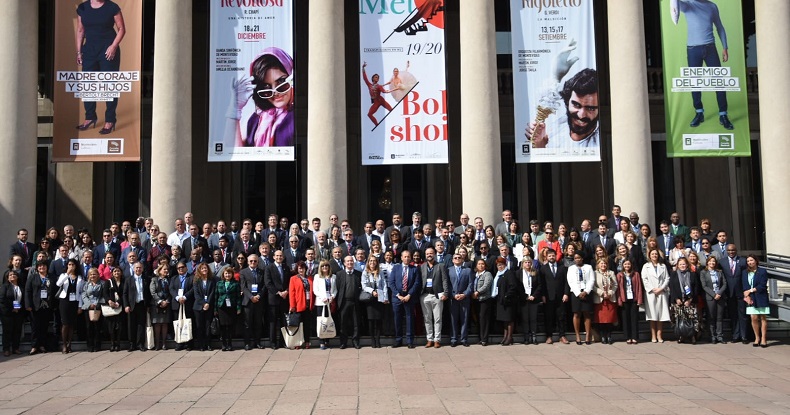One hundred and fifty representatives from more than thirty countries in Latin America, the Caribbean and the European Union reflected on the use of alternative measures to imprisonment at a bi-regional conference organized in Montevideo by three EU regional cooperation programmes (COPOLAD II, EL PAcCTO and EUROsociAL+) and supported by AUCI, the Uruguayan National Drug Board (JND) and the Ministry of the Interior.
They also discussed how these measures contribute to the effective fight against organized crime and how they promote social reintegration. They also highlighted the need for inter-agency coordination to effectively implement the use of alternative measures in all the countries.
At the end of the event, the participants issued a joint statement advocating for a more systematic use of alternative measures to imprisonment for minor crimes and for individuals that do not pose any danger to the community.
Particular attention must be paid – states the declaration – to women who have committed minor or non-violent offences, as they are a particularly vulnerable population, and already affected by a situation of discrimination and structural inequality.
Throughout the two-day conference, participants discussed a “Catalogue of alternative measures to custodial sentences”, summarizing the main tools implemented in the various Latin American countries. Speakers agreed that prison cannot be viewed as the only solution to deal with crime, since numerous international studies indicate that they may end up turning into schools of crime.
“We know that this issue generates reluctance in some sectors of public opinion, but we need to work to raise awareness among different actors and society as a whole. We must inform people about the consequences of increased incarceration rates, while explaining the benefits of using alternative measures, other than deprivation of liberty,” said Jorge de la Caballería, head of unit of the Directorate-General for International Cooperation Development of the European Commission.
Meanwhile, Andrea Vignolo, Executive Director of the Uruguayan Agency for International Cooperation (AUCI), remarked that the problems of detainees and penalties are global issues.
In this regard, she stressed that “regional, bilateral and international cooperation, through the various instruments such as the CSS, play a strategic role in bringing together successful experiences and lessons learned. This helps us move towards the implementation of all the standards and the United Nations 2030 Agenda for Sustainable Development, in which we set out not to leave any country behind.”
“If we are to move towards better societies, we need to create opportunities for all of us, so that we may all have a chance to develop our life projects, regardless of where we are,” she concluded.
The last day of the activity included four workshops in which participants discussed the cost of prison policies, the use of alternative measures for minor offences, social insertion as a path toward social cohesion and to quitting crime, as well as alternative measures to pre-trial detention.
